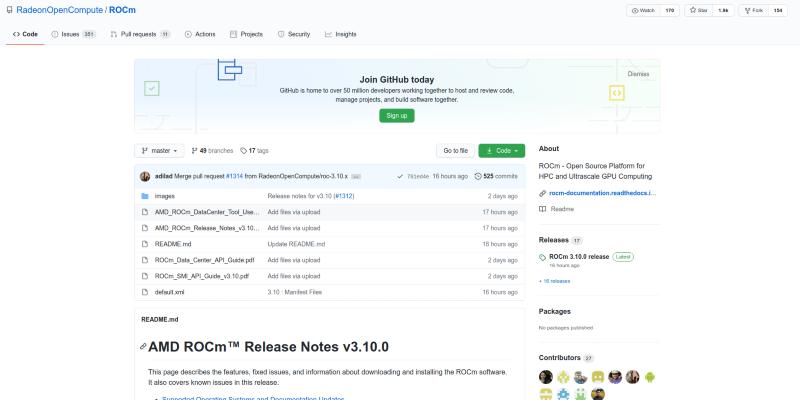AMD has released a new version of the Radeon Open Compute Linux stack for AMD graphics cards.
ROCm is designed to be a universal platform for gpu-accelerated computing. This modular design allows hardware vendors to build drivers that support the ROCm framework. ROCm is also designed to integrate multiple programming languages and makes it easy to add support for other languages.
Note: You can also clone the source code for individual ROCm components from the GitHub repositories.
ROCm Components
The following components for the ROCm platform are released and available for the v2.10 release:
• Drivers
• Tools
• Libraries
• Source Code
You can access the latest supported version of drivers, tools, libraries, and source code for the ROCm platform at the following location: https://github.com/RadeonOpenCompute/ROCm
Supported Operating Systems
The AMD ROCm platform is designed to support the following operating systems:
Ubuntu 20.04.1 (5.4 and 5.6-oem) and 18.04.5 (Kernel 5.4)
CentOS 7.8 & RHEL 7.8 (Kernel 3.10.0-1127) (Using devtoolset-7 runtime support)
CentOS 8.2 & RHEL 8.2 (Kernel 4.18.0 ) (devtoolset is not required)
SLES 15 SP2
Whats New in This Release
ROCm DATA CENTER TOOL
The following enhancements are made to the ROCm Data Center Tool.
Prometheus Plugin for ROCm Data Center Tool
The ROCm Data Center (RDC) Tool now provides the Prometheus plugin, a Python client to collect the telemetry data of the GPU. The RDC uses Python binding for Prometheus and the collected plugin. The Python binding maps the RDC C APIs to Python using ctypes. The functions supported by C APIs can also be used in the Python binding.
Python Binding
The ROCm Data Center (RDC) Tool now uses PyThon Binding for Prometheus and collectd plugins. PyThon binding maps the RDC C APIs to PyThon using ctypes. All the functions supported by C APIs can also be used in PyThon binding.
Download ROCm 3.10.0
Release Notes

